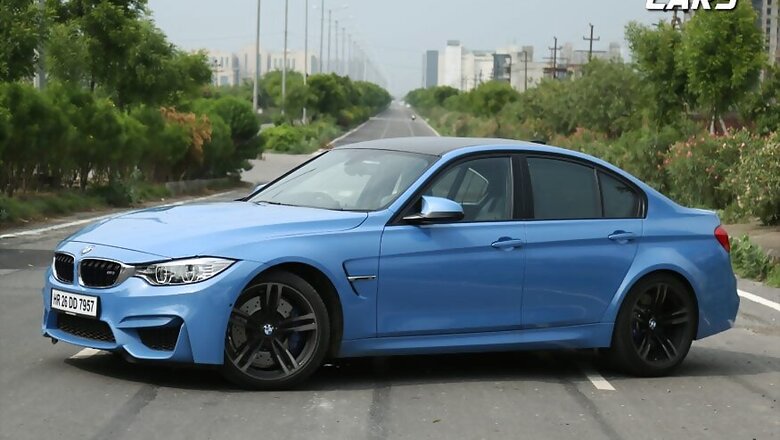
views
The BMW M3 and M4 performance models are known for their aggressively seductive exterior styling and their performance figures -- but for real enthusiasts, the standout feature is their carbon-fiber driveshafts. Unfortunately, this high-tech feature is soon to be dropped as the M3 and M4 return to using conventional steel instead.
The reason for this is not, however, an attempt to cut costs. In fact, the return to conventional steel in place of carbon fiber is so the car can meet increasingly stringent emissions standards.
BMW will be adding a particulate filter to the exhaust system in the future to stay emissions-compliant. The problem with carbon-fiber driveshafts is they have a wider diameter than their steel counterparts, and take up too much room. Steel driveshafts are going to have to be substituted so the particulate filters can be added without needing a major redesign.
The steel component is going to be an M-specific high-performance driveshaft, so it will still deliver stunning performance, and the manufacturer insists only the most discerning drivers will notice any difference.
It will, however, add a little to the car's overall weight, and will also mean an increase in mass for the engine to move. This could result in the engine being slightly less eager to rev than it is at the moment. But BMW could always compensate for this by getting rid of excess weight somewhere else, possibly by employing a lighter flywheel or half-shafts.
Even if BMW does go down that route to compensate for the change of driveshaft, the M3 and M4 models produced from November will still be a little less advanced than those made before the change is implemented.
The news came out of BMW's global headquarters, so although it has not been confirmed, it is expected that the change will affect models sold in every territory, including the US. A statement from the German automaker explained, "For production-related reasons, this pre-enabling (of the new driveshaft for future emissions equipment) needs to be carried out universally."
Also Watch: BMW M3 Test Drive Review


















Comments
0 comment